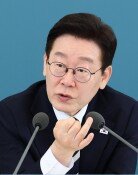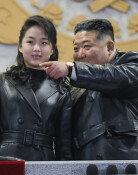Seniors Now 9.5% of Korean Population
Seniors Now 9.5% of Korean Population
Posted October. 02, 2006 07:02,
The percentage of senior citizens aged over 65 has reached 9.5 percent, inching closer to 10 percent of the total population.
At that pace, the percentage of the elderly aged over 65 will surpass 14 percent by 2018 and Korea will enter the aged society from the current aging society.
The United Nations classifies a society whose population includes 10 to 14 percent of the over 65 year-old population as an aging society, 15 to 20 percent as an aged society, and over 20 percent as a super aged society.
The National Statistical Office (NSO) announced the 2006 Senior Citizen Statistics on Sunday and the details were as follows.
As of July 2006, the number of people aged over 65 made up 9.5 percent or 4,597,000 out of the total population of 48,497,000.
The proportion of elderly men aged over 65 was only 7.6 percent of the total male population, while elderly women aged 65 accounted for 11.4 percent. The number of elderly women aged over 100 was 857 while that of elderly men aged over 100 was only 104.
According to the survey, a greater number of senior citizens are living in rural areas than cities. As of the end of last year, the ratio of senior citizens aged over 65 and in a rural community was 18.6 percent while the percentage of senior citizens in cities was merely 7.2 percent, less than half of the number in rural areas.
The percentage of the elderly aged over 65 was highest in Imsil-gun, North Jeolla Province, accounting for 33.8 percent, and lowest in Dong-gu, Ulsan, an industrial city, accounting for only 3.6 percent.
As of at the end of last year, senior citizen couples aged over 65 years old turned out to make a living with an average of 1.16 million won (US $1,160) per month. This accounts for merely 38.7 percent of the average monthly income (3.0 million won or US $3,000) of non-elderly households.
According to the survey findings of the NSO, the most serious hardship that the surveyed senior citizens felt was financial difficulties (44.6 percent), exceeding health problems (30.1 percent), which had always placed first in similar surveys.
According to the survey, an elderly couple spent 1.02 million won (US $1,020), and 30.7 percent of their expenses accounted for grocery, 12.8 percent for utilities and 12.6 percent for medical expenses.
ddr@donga.com







